The NLog.config file does not set the connection string.
<?xml version="1.0" encoding="utf-8" ?>
<nlog xmlns="http://www.nlog-project.org/schemas/NLog.xsd"
xmlns:xsi="http://www.w3.org/2001/XMLSchema-instance"
autoReload="true"
internalLogLevel="Warn"
internalLogFile="c:\temp\internal-nlog.txt">
<!-- Load the ASP.NET Core plugin -->
<extensions>
<add assembly="NLog.Web.AspNetCore" />
</extensions>
<variable name="SirNLogDb" value="data source=SQL_MULALLEY;initial catalog=LogFiles;User ID=xxx;Password=yyy;">
</variable>
<!-- providerName="System.Data.SqlClient"-->
<!-- the targets to write to -->
<targets>
<target name="db"
xsi:type="Database"
dbProvider="System.Data.SqlClient"
connectionString="${var:SirNLogDb}"
commandType="StoredProcedure"
commandText="[dbo].[NLog_AddEntry_p]">
<parameter name="@machineName" layout="${machinename}" />
<parameter name="@siteName" layout="${iis-site-name}" />
<parameter name="@logged" layout="${date}" />
<parameter name="@level" layout="${level}" />
<parameter name="@username" layout="${aspnet-user-identity}" />
<parameter name="@message" layout="${message}" />
<parameter name="@logger" layout="${logger}" />
<parameter name="@properties" layout="${all-event-properties:separator=|}" />
<parameter name="@serverName" layout="${aspnet-request:serverVariable=SERVER_NAME}" />
<parameter name="@port" layout="${aspnet-request:serverVariable=SERVER_PORT}" />
<parameter name="@url" layout="${aspnet-request:serverVariable=HTTP_URL}" />
<parameter name="@https" layout="${when:inner=1:when='${aspnet-request:serverVariable=HTTPS}' == 'on'}${when:inner=0:when='${aspnet-request:serverVariable=HTTPS}' != 'on'}" />
<parameter name="@serverAddress" layout="${aspnet-request:serverVariable=LOCAL_ADDR}" />
<parameter name="@remoteAddress" layout="${aspnet-request:serverVariable=REMOTE_ADDR}:${aspnet-request:serverVariable=REMOTE_PORT}" />
<parameter name="@callSite" layout="${callsite}" />
<parameter name="@exception" layout="${exception:tostring}" />
</target>
</targets>
<!-- rules to map from logger name to target -->
<rules>
<!--All logs, including from Microsoft-->
<logger name="*" minlevel="Trace" writeTo="database" />
</rules>
</nlog>
I put a breakpoint and the connection string is null;

My Startup method is as follows;
public void ConfigureServices(IServiceCollection services)
{
services.AddMvcCore()
.AddMvcOptions(o => o.OutputFormatters.Add(
new JsonOutputFormatter(new JsonSerializerSettings(), ArrayPool<char>.Shared)));
var connectionStringMSurveyV2 = Configuration.GetConnectionString("MSurveyV2Db");
services.AddScoped<MSurveyV2Db>(_ => new MSurveyV2Db(connectionStringMSurveyV2));
var connectionStringSir = Configuration.GetConnectionString("SirDb");
services.AddScoped<SirDb>(_ => new SirDb(connectionStringSir));
services.AddScoped<IPropertiesRepo, PropertiesRepo>();
services.AddScoped<ISirUoW, SirUoW>();
services.AddScoped<Services.IMailService, Services.MailService>();
}
// This method gets called by the runtime. Use this method to configure the HTTP request pipeline.
public void Configure(IApplicationBuilder app, IHostingEnvironment env, ILoggerFactory loggerFactory)
{
loggerFactory.AddConsole();
loggerFactory.AddDebug();
loggerFactory.AddNLog();
//add NLog.Web
app.AddNLogWeb();
if (env.IsDevelopment())
{
app.UseDeveloperExceptionPage();
}
else
{
app.UseExceptionHandler();
}
app.UseMvc();
AutoMapper.Mapper.Initialize(cfg =>
{
cfg.CreateMap<Exception, OperationStatus>();
cfg.CreateMap<ViewSelectedContracts, ContractDto>();
});
var logger = LogManager.GetCurrentClassLogger();
logger.Info("Logged in");
}
}
EDIT - I change the logger rule to <logger name="*" minlevel="Trace" writeTo="db" /> but still it didn't output anything. However I looked for the c:\temp\internal-nlog.txt and it had not been created. So it appears the nlog.config file is being ignored. But it is in my project next to the Startup.cs file.
EDIT2: - the null configuration can be solved by setting "Copy to output directory" to "copy always". From the comments underneath I have now got this working.